 Weird Stuff
Weird Stuff  Weird Stuff
Weird Stuff  Miscellaneous
Miscellaneous 10 LEGO Facts That Will Toy with Your Mind
 Misconceptions
Misconceptions 10 Widespread Historical Myths and the Texts That Started Them
 Crime
Crime 10 Incredible Big-Time Art Fraudsters
 Movies and TV
Movies and TV 10 Most Influential Fictional Objects in Cinema History
 Our World
Our World Top 10 Real Almost‑Cities That Never Materialized
 Technology
Technology 10 Unsettling Ways Big Brother Is (Likely) Spying on You
 Music
Music 10 Chance Encounters That Formed Legendary Bands
 Space
Space 10 Asteroids That Sneaked Closer Than Our Satellites
 Sport
Sport The 10 Least Credible Superstars in Professional Sports
 Weird Stuff
Weird Stuff 10 of History’s Greatest Pranks & Hoaxes
 Miscellaneous
Miscellaneous 10 LEGO Facts That Will Toy with Your Mind
 Misconceptions
Misconceptions 10 Widespread Historical Myths and the Texts That Started Them
Who's Behind Listverse?

Jamie Frater
Head Editor
Jamie founded Listverse due to an insatiable desire to share fascinating, obscure, and bizarre facts. He has been a guest speaker on numerous national radio and television stations and is a five time published author.
More About Us Crime
Crime 10 Incredible Big-Time Art Fraudsters
 Movies and TV
Movies and TV 10 Most Influential Fictional Objects in Cinema History
 Our World
Our World Top 10 Real Almost‑Cities That Never Materialized
 Technology
Technology 10 Unsettling Ways Big Brother Is (Likely) Spying on You
 Music
Music 10 Chance Encounters That Formed Legendary Bands
 Space
Space 10 Asteroids That Sneaked Closer Than Our Satellites
 Sport
Sport The 10 Least Credible Superstars in Professional Sports
10 Landmark Court Cases That Solved Nothing
If the American legal system seems far from perfect, perhaps it is because we expect it to do the impossible—effectively administer justice individually on a case-by-case basis while also establishing precedent on future less clear-cut issues that affect society. From entertainment law to criminal cases to the world of politics, establishment of legal precedent can have effects far beyond those actually involved in the cases. And in almost all such cases, the establishment of precedent is only the beginning of the debate.
10Grand Upright Music vs. Warner Bros. Records
1991
From its inception, rap relied heavily on the art of sampling—incorporating recorded passages from existing compositions to create new ones. While there was some debate within the industry about the use of samples, it wasn’t until 1991 that the issue was brought to court with an unlikely focal point from borderline novelty rapper and Juice Crew C-lister Biz Markie.
At issue was Markie’s song “Alone Again,” which was heavily composed around a sample of “Alone Again (Naturally),” a 1972 track by Irish songer/songwriter Gilbert O’Sullivan. In a 2010 interview, O’Sullivan related that while Biz’s record company had approached him about gaining permission to use the sample, he had declined after hearing the finished track, as he was not fond the idea of his melancholy, personal song being used as a backdrop for Biz’s comedy stylings.
The court decided that artists must not only get permission but pay licensing fees to sample recorded work. That ruling remains controversial to this day, as it had the effect of limiting the use of sampling—a foundational piece of the architecture of rap music—to only those who could afford it. It can be argued that no court decision has had a greater impact on the creative direction of an art form.
9Brown vs. Entertainment Merchants Association
2011

While parents have been searching for contributing factors in pop culture to their teens’ bad behavior since time immemorial, no one thing has proven to be a conclusive risk factor (besides lack of parental involvement). In 2005, violent video games were the target. California governor and former violent action movie star Arnold Schwarzenegger signed into law a bill that restricted the sale of violent video games to minors. In response, the Video Software Dealers Association (rebranding itself as the Entertainment Merchants Association) filed suit in District Court. Thus began a six-year-long series of injunctions and appeals leading all the way the US Supreme Court.
The EMA asserted that video games were media, just like any other media, and were therefore protected speech under the First Amendment (despite their interactive nature). Since there was no compelling evidence to differentiate interactive media from any other, and also absent any studies conclusively linking video games to real-world behavior, the District Court agreed. The ruling was upheld by the Ninth Circuit Court of Appeal in 2009 and by the Supreme Court in 2011.
8Buchwald vs. Paramount
1993
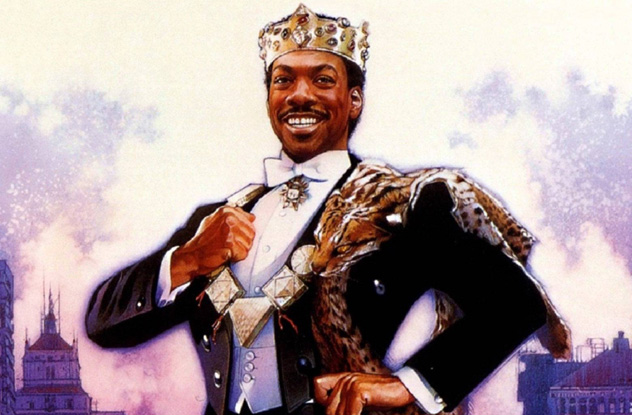
In 1992, the Eddie Murphy comedy Coming to America was a huge hit for Paramount Pictures, grossing $288 million, almost exactly 10 times its budget. Though this should be considered a financial success by any definition, Paramount soon found itself claiming in court that the film had made no “net profit,” a phrase that would become notorious in Hollywood for years afterward.
About 10 years prior, humor columnist Art Buchwald and his business partner had sold a script treatment titled King for a Day to Paramount for a mediocre sum of cash plus a percentage of future profits. Paramount appeared to have lost interest, enough that Buchwald was shopping his treatment to Warner Bros. In 1992, Paramount suddenly released Coming to America, which had an identical premise.
While Paramount didn’t deny that their script had been based on Buchwald’s treatment, they did deny that any percentage of the profits were due to him—because according to studio, there weren’t any. They contended that the worldwide box office smash was still in the red after studio expenditures were accounted for, asserting what Buchwald’s attorney called their “rights to be an unbelievably lousy money manager.”
Although Buchwald and his partner were awarded $900,000 in a judgment that referred to the original contract as “unconscionable,” the issue has seen little litigation since, despite remaining a hot topic throughout the industry. In 2010, the budget sheet for Harry Potter and the Order of the Phoenix was leaked online, demonstrating how Warner Bros. was able to show a $167 million loss on a film that made nearly $1 billion worldwide, through what could only be termed highly creative accounting practices.
7Recording Industry Association Of America vs. Napster
2001
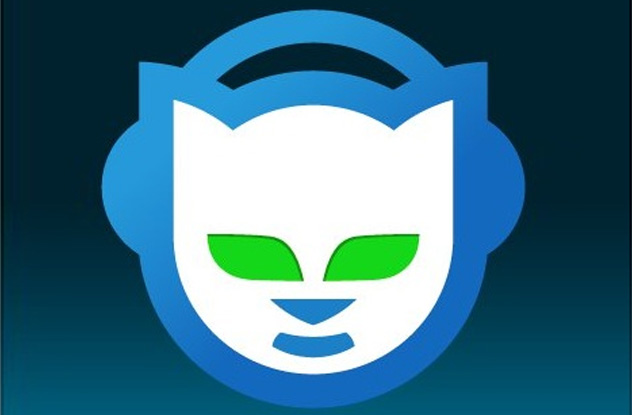
In 1999, amateur developers Sean Parker and Shawn Fanning debuted an online music service based upon a concept brand-new in the early days of the Internet: peer-to-peer file sharing. Its focus was the relatively new mp3 file, a burgeoning medium for compressed, mid-quality recorded music. Within a year or so, Napster was pushing 50 million users and was drawing the extreme ire of the recording industry.
The idea of music piracy damaging the industry was certainly nothing new. But while, for example, home cassette recorders had failed to deliver the expected corresponding plunge in record sales, Napster made it far easier than in years past. Among a spate of lawsuits filed by individual artists and labels (including, famously, Metallica), the Recording Industry Association of America brought its own suit, which was decided in its favor in July 2001.
The ruling—the trading of copyrighted material online was unlawful—fatally crippled Napster, which exists now in name only as part of the music service Rhapsody. Its legacy is a double-edged sword, portending not only the rise (and subsequent fall) of copycat file sharing networks like Kazaa and Limewire but the viability of digital music as a medium: Napster’s demise roughly coincided with the early beginnings of Apple’s iTunes.
6NFL Players Concussion Injury Litigation
2013

Head injuries in professional football began to creep into the public dialogue in the early 1990s, owing to a brutal hit on Dallas Cowboys quarterback Troy Aikman in a 1993 game, which he has no memory of playing in to this day. In 1999, former Chiefs and Steelers player Mike Webster won a hearing before the NFL’s Retirement Board that declared him permanently disabled due to head injuries sustained while a player, After Webster’s death in 2002, his brain was examined by Allegheny County medical examiner Bennet Omalu, who discovered the first evidence in a football player of the brain condition known as CTE (Chronic Traumatic Enchephalopothy).
Since then, science has made clear that CTE can be caused by the types of repeated impacts and concussions experienced by pro football players on a constant basis. In a 2013 lawsuit brought by the NFL Players’ Association on behalf of over 4,500 former players, the NFL was ordered to pay a $765 million settlement, which was upheld upon appeal in 2016.
In the intervening years between Webster’s CTE diagnosis and the ruling, the NFL has made several improvements to the design of its helmets and initiated a “concussion protocol” to prevent players from sustaining multiple concussions without time for recovery. While the NFL has been criticized for moving too slowly on this issue, a recent report indicates that the new safety measures are having an effect, with concussions decreasing by 35 percent from 2012 to 2014.
5State Of New York vs. Bernhard Goetz
1986
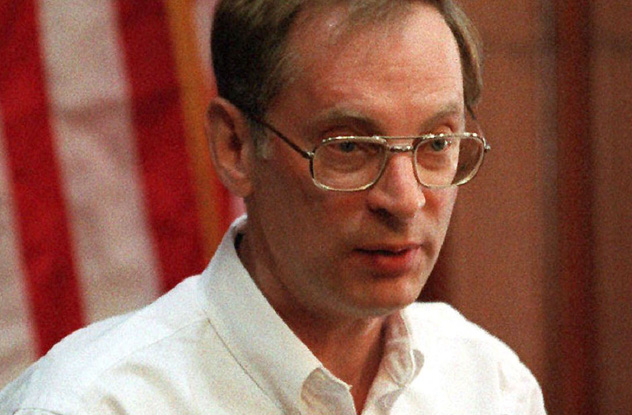
In 1984, New Yorker Bernhard Goetz vaulted into fame after an incident on the subway, in which he shot and injured four teenagers who may or may not have been trying to rob him. With its racial overtones—Goetz was white, his maybe-assailants black—and against the backdrop of a New York City with exploding crime rates, the subsequent trial was followed closely by the media and public and dragged on for two years. In 1987, Goetz was found not guilty of all but a criminal weapons possession charge in what was a defining moment for the National Rifle Association, according to Richard Feldman, its spokesman at the time.
According to Feldman, the gun control debate in America had previously centered on whether the average American even had a right to own a handgun. After the Goetz trial, the debate shifted to discussion of “the lawful ability to carry one.” The implication of the ruling was that average citizens have a right to defend themselves if law enforcement is unable to protect them, a sentiment that can be seen in the countless pieces of legislation involving concealed or open carry firearms, “Stand Your Ground” statutes, and the like, which have become a major component of the dialogue around gun control in America. The first “shall issue” statute—mandating that a gun license be issued if the applicant meets basic standards—was issued in Florida just one year after the ruling.
4Sebelius vs. Hobby Lobby Stores, Inc.
2014

In 2010, the Obama administration signed into law the Affordable Care Act, which aimed to provide all US citizens with access to health insurance. As a provision of the ACA, employers were mandated to provide health plans for their employees that cover all forms of contraception. This provision ran into stiff and unexpected opposition from Hobby Lobby Stores, which filed a lawsuit claiming a religious exemption to this mandate.
At the heart of the lawsuit were two very tricky and controversial concepts: the notion of religious freedom and that of corporate personhood. Hobby Lobby’s position was that the corporation’s religious beliefs precluded it from providing contraception, a position protected under the 1993 Religious Freedom Restoration Act, which states, “Government shall not substantially burden a person’s exercise of religion even if the burden results from a rule of general applicability.” Corporations have many of the rights extended to individuals under US law, and at issue was whether religious preference is one of them.
In 2014, the Court ruled in favor of Hobby Lobby, in a decision which has encouraged countless pieces of religious freedom legislation in its wake. Justice Ruth Bader Ginsburg opined, in a scathing dissent: “In a decision of startling breadth, the Court holds that commercial enterprises, including corporations . . . can opt out of any law (saving only tax laws) they judge incompatible with their sincerely held religious beliefs.”
3Supreme Court Confirmation Hearings
1991
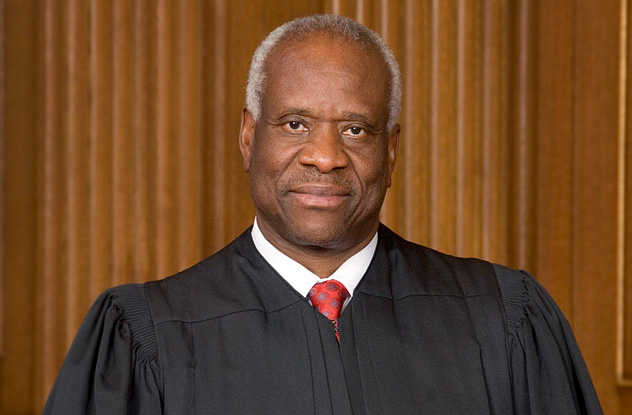
In 1991, despite less than a year on the bench, Judge Clarence Thomas was nominated by President George Bush to become only the second black Supreme Court justice. Early on, the hearings were going well; then, an NPR correspondent to the Supreme Court received leaked documentation linking Thomas to sexual assault allegations made by a former employee by the name of Anita Hill.
Ironically, the alleged impropriety happened while Thomas was Chairman of the Equal Employment Opportunity Commission, in addition to earlier similar incidents alleged to have taken place while Hill worked under Thomas at the US Department of Education. Despite detailed testimony from Ms. Hill and several other women, Thomas was confirmed on October 15, 1991, by a 52–48 margin, the narrowest in over 100 years.
The public spectacle and skin-of-the-teeth confirmation for the controversial justice—who has proven to be one of the most conservative in the Court’s history and remains on the bench at the time of this writing over 20 years later—catapulted the issue of sexual harassment in the workplace into the public consciousness to a greater degree than ever before. The hearings and their aftermath were dramatized in the 2016 HBO film Confirmation.
2Bush vs. Gore
2000
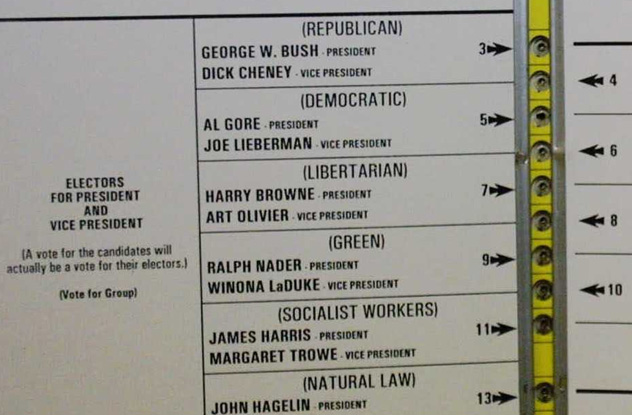
While it is safe to say that the 2000 US presidential election was very close, there is not much else that is safe to say about one of the most contested and controversial elections in the nation’s history. Widespread problems with new voting machines, along with the mathematical anomaly of eventual president George W. Bush being declared the winner despite losing the popular vote, led to the perception among a considerable number of Americans that the election had been handled extremely poorly at best or stolen at worst.
At the heart of the matter was the state of Florida and in particular several counties in which the vote was extremely close, triggering provisions in state law that called for recount by machine. This tightened the count, giving the losing candidate the option to select counties in which to recount manually. Gore did, opting for recounts in four counties where new voting machine hardware had caused several complaints of malfunctioning, which made the count even closer, with some counties failing to make the recount deadline.
After a month of intense haggling over late ballots due to the recounts, malfunctioning voting machines, and the perceived resultant favoring of some ballots over others, the US Supreme Court threw out the Florida Supreme Court’s decision to recount—and thus the entire recount—as unconstitutional under the Fourteenth Amendment, holding that all ballots must be treated equally. And the George W. Bush administration was born, and we all laughed and cried in equal measure for the next eight years.
1Citizens United vs. Federal Election Commission
2010

The 1971 Federal Election Campaign Act severely undermined the influence of corporate money on American elections. Among other things, it required the full reporting of campaign contributions and limited the amount a candidate’s campaign could spend on advertising. This last provision was later ruled unconstitutional, as advertising was considered free speech and therefore protected. This paved the way for the Supreme Court ruling in favor of the advocacy group Citizens United in 2010.
The Court ruled that although contributions from an individual or corporation to a candidate were still strictly limited, such contributions to an independent organization that might happen to support a certain candidate’s platform were protected as free speech under the First Amendment . While the Court seems to have made the ruling under the assumption that such organizations would remain truly independent from the candidates, Super Political Action Committees (“Super PACs”) often operate hand in hand with campaign staff.
The result, some claim, has led to corporate interests overrepresented at the expense of the average citizen. The US Supreme Court affirmed the 2010 ruling once, overturning a Montana Supreme Court corporate election spending ban that challenged it. This will almost certainly not be the last challenge it will have to withstand.








